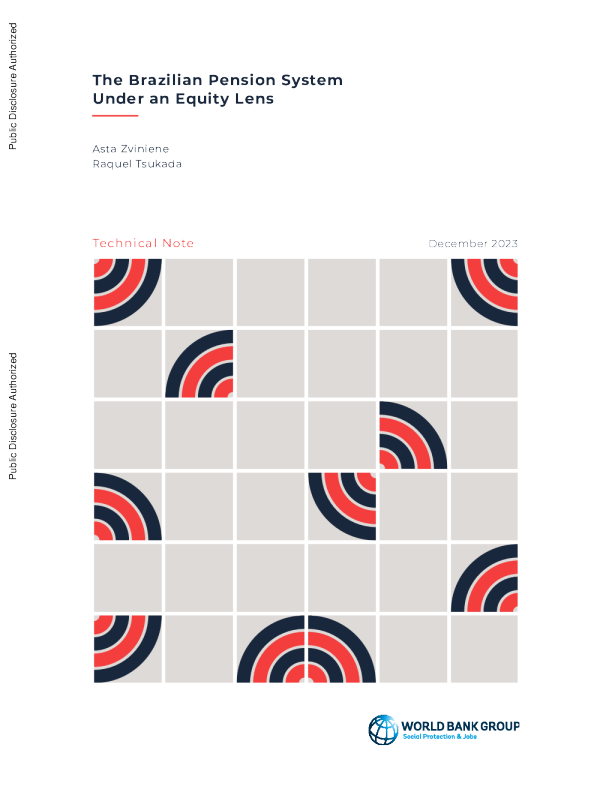弱势制度下的环境政策(英)
 AI智能总结
AI智能总结
PublicDisclosureAuthorized PublicDisclosureAuthorized PolicyResearchWorkingPaper10719 EnvironmentalPolicyunderWeakInstitutions CemKarayalcinHarunOnder Macroeconomics,TradeandInvestmentGlobalPracticeMarch2024 PolicyResearchWorkingPaper10719 Abstract Developingcountriesarefacingmountingpressurestoincorporateenvironmentalconcernsintotheirpolicyreformagendas.Thispaperfindsthatcommonenviron-mentalpolicies,suchaslevyingtaxestoreducetheexcessiveexploitationofnaturalassets,canbeself-defeatingwhen (i)institutionsareweakand(ii)thegeneralequilibrium effectsofsuchpolicyactionsareoverlooked.Thisseeminglyparadoxicalresultisdrivenbyfundamentalmechanismsinstructuraltransformationframeworks,withouttheneedforstrongassumptions.Italsocarriesaclearpolicyimplication:environmentalpoliciesshouldbeconsideredwithinacoun-try’sbroaderdevelopmentcontext,ratherthaninisolation. ThispaperisaproductoftheMacroeconomics,TradeandInvestmentGlobalPractice.ItispartofalargereffortbytheWorldBanktoprovideopenaccesstoitsresearchandmakeacontributiontodevelopmentpolicydiscussionsaroundtheworld.PolicyResearchWorkingPapersarealsopostedontheWebathttp://www.worldbank.org/prwp.Theauthorsmaybecontactedathonder@worldbank.org. ThePolicyResearchWorkingPaperSeriesdisseminatesthefindingsofworkinprogresstoencouragetheexchangeofideasaboutdevelopmentissues.Anobjectiveoftheseriesistogetthefindingsoutquickly,evenifthepresentationsarelessthanfullypolished.Thepaperscarrythenamesoftheauthorsandshouldbecitedaccordingly.Thefindings,interpretations,andconclusionsexpressedinthispaperareentirelythoseoftheauthors.TheydonotnecessarilyrepresenttheviewsoftheInternationalBankforReconstructionandDevelopment/WorldBankanditsaffiliatedorganizations,orthoseoftheExecutiveDirectorsoftheWorldBankorthegovernmentstheyrepresent. ProducedbytheResearchSupportTeam EnvironmentalPolicyunderWeakInstitutions∗ CemKarayalcin†andHarunOnder‡ Keywords:EnvironmentalPolicy,ClimateChange,DevelopmentJELcodes:H23,O44,Q58 ∗Thefindings,interpretations,andconclusionsexpressedinthispaperareentirelythoseoftheauthors;theydonotnecessarilyrepresenttheviewsoftheWorldBankGroupanditsshareholders.WethankTitoCordella,RichardDamania,StefanieOnder,SjakSmulders,andseminarparticipantsattheInternationalMonetaryFundandtheWorldBankEastAsiaChiefEconomistOfficeforinvaluablecommentsandsuggestions.Allerrorsareours. †FloridaInternationalUniversity,Miami,FL. ‡Macroeconomics,Trade&InvestmentGlobalPractice,WorldBank,Washington,DC 1Introduction Climatechangeistransformingtheglobalpolicyagenda,withsignificantconsequencesfordevelopingeconomies.Ononehand,tradepolicymeasuressuchastheEuropeanCarbonBorderAdjustmentMechanism(CBAM)aimtofacilitatepollutionmitigationeffortsoutsideadvancedeconomies.Ontheotherhand,growingemphasisonenvironmentaland/orclimatereformsandprojectsseemtoreconfigureofficialaidtodevelopingcountries.Leavingasideanynormativeconcernsregardingthesetrends,thispaperfocusesonamorepositiveinquiry:Cancommoninstitutionalweaknessesindevelopingeconomiesinfluencetheeffectivenessoftraditionalenvironmentalpolicyprescriptions? Toanswerthisquestion,weutilizeasimplegeneralequilibriummodelwithtwosectors,agricultureandmanufacturing,followingMatsuyama,1992.Whilemanufacturingonlyemployslabor,agricultureemploysbothlaborandanature-basedinput(land).Workersaremobileacrossthesectors,respondingsolelytodifferencesinwages.Preferencesarenon-homothetic,withasubsistenceleveloffoodconsumptionsettingtheincomeelasticityofdemandforfoodtolessthanunitary.Inthebenchmarkscenario,theeconomyisassumedtobeclosedanddecentralized,withweakinstitutions.Thisentailsincompletepropertyrightsovernature-basedassets,leadingtodynamicdistortions(over-exploitationofthenaturalassetfromasocialpointofview),andadministrativeweaknessessuchaselitecaptureorinefficienciesintaxcollection,allowingaportionofthetaxproceedstoleakoutoftheeconomy.Withinthisframework,wefirstexaminethesolutionofthesocialplanner,whointernalizesthesocialcostofover-exploitingnaturalresources.Subsequently,weinvestigatewhetherpolicymakerscanreducethisexcessiveexploitationsimplybylevyingataxonthenaturalresource-intensivesector(toberebatedtoconsumers)withinadecentralizedsetup.Theanalysisrevealsthat,underthebenchmarkconditions,environmentaltaxescanbeself-defeating.Thatis,theycanincreasetheexploitationofnaturalresourcesratherthandecreaseit,whenarelativelylargeshareoftaxproceedsislost.Thisseeminglyparadoxicaloutcomeisdrivenbythreechannelsthatarecommontomulti-sectorgeneralequilibriummodels.First,environmentaltaxesreducethemarginalproductivityoflaborinagriculture,drivingworkerstowardsmanufacturing.Second,inaclosedeconomy,thisnegativesupplyshockleadstohigherfoodprices,hinderingtheoutflowoflaborfromthesector.Third,withnon-homotheticpreferences,adverseincomeshocksincreasesdemandforfood,reinforcingthepriceeffectinaclosedeconomy.Withinourframework,whentheleakageislargeenough,thedemand-sideeffectscandominatethesupply-sideeffects,therebyincreasingthe exploitationofnaturalresources. Wealsoconsiderseveralextensions,whichdemonstra




